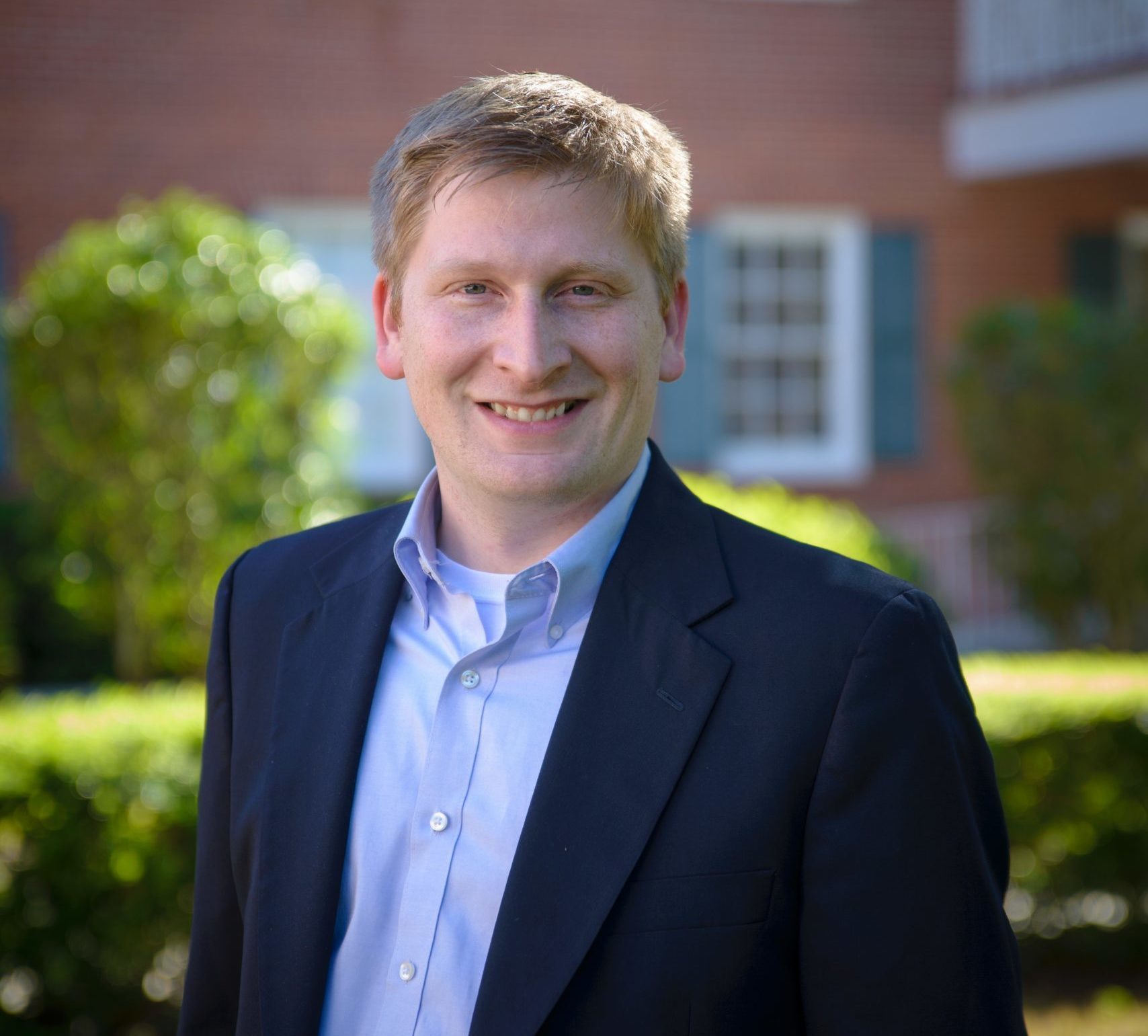Meet the Speakers: Rhyne Putman
May 9, 2023
Today, we're sitting down to talk with Dr. Rhyne Putman.
The morning of May 21, Dr. Putman will be joining us at FBA for a churchwide Sunday school class on worldview before preaching the Sunday service that morning. We wanted to give you an opportunity to learn a little bit about him and his background before he visits us later this month.
Dr. Putman received his PhD from New Orleans Baptist Theological Seminary and serves as associate vice president of academic affairs at Williams Baptist University. He is also an associate professor of theology at New Orleans Baptist Theological Seminary. He is the author of several books, including When Doctrine Divides the People of God and The Method of Christian Theology: A Basic Introduction.
Below is our conversation with him!
Hey, Dr. Putman. I hope the semester is ending well for you. Tell me a little about Williams Baptist University, what you do there, and how you ended up there.
Williams Baptist University is the Christian liberal arts university in rural northeast Arkansas where I went to school. We are in the process of becoming the first work college in the SBC. This means that students can graduate debt-free, or at least with a very small debt if they work various jobs on or off campus. We have a farm, a meat processing plant, a store, a chicken-egg operation, and other community partnerships with hotels, hospitals, and engineering firms.
In addition to having a Christ-centered worldview education, we believe we can also teach a Christian work ethic. I serve as the academic dean there, and I get to lead our faculty and speak into how a Christian worldview shapes every facet of our curriculum.
Your book The Method of Christian Theology is one of my favorite introductions to theology I've ever read. It's accessible, but it's still informative and precise. Tell me a little about what you wanted to do when you wrote that book, how it has been received, and your favorite sections of it.
As a professor, I've always been interested in the connection between the Bible and theology. As a pastor, I wanted to connect theology with the life of the local church and the Great Commission. This meant exploring some questions about how we study theology and how it impacts our walk with Christ. So, this work represents my attempt at presenting these concepts in a way that would be accessible to undergraduates, first-year seminary students, and interested lay people.
Speaking of your books on theology, you also wrote one about the concept of "theological diversity." What kinds of issues do you see Christians divided over, and what kinds of issues should Christians divide over? Is there ever a good time to divide?
We should always divide with those who reject the gospel of Jesus's death, burial, resurrection, and glorious second coming, as well as those things which are core orthodox beliefs (e.g., biblical authority, the deity of Christ, the doctrine of the Trinity, salvation by grace through faith, etc.). There are also doctrinal beliefs that make our churches our churches, such as Baptist views on baptism or church governance. These aren't heaven-hell issues, but they are significant enough to form congregations around or to break close fellowship over.
That being said, there are a number of other issues that otherwise like-minded Christians fight over that I believe shouldn't be sources of contention: the timetable of the Lord's return, the nature of predestination, and the like. Discernment about when we should go our separate ways and when we should come together requires submission to the Word of God, the leadership of the Holy Spirit, and the wise council of the church and tradition.
If there's anything I know about you, it's that you're Baptist to your core. Talk a little about your background in the Baptist tradition and the Southern Baptist Convention.
To quote the twentieth-century Bellevue pastor R. G. Lee, "I was Baptist born and Baptist bred. When I die, I'll be Baptist dead." I grew up the son of an SBC pastor. As a small child, I was in Mission Friends and the Royal Ambassadors. (I'm showing my age now.) I competed in Bible drills and Pinewood Derbies. Baptist churches taught me how to love my Bible, share my faith, and support missionary efforts.
As I have grown older, I have come to love and understand my Baptist tradition in deeper and more meaningful ways. I love pastoring my SBC church. I love our high view of Scripture's authority and inerrancy. I love our evangelistic focus. I love the way we train pastors and missionaries. I love cooperative effort.
Okay, last few questions for you: have you ever been to East Tennessee? We need to know the best way to show you hospitality while you're here. What are you looking forward to the most about getting to come up for a weekend?
Yes, I have ancestral roots in East Tennessee, though most of my growing-up years were in West Tennessee. I ring cowbells; so I don't sing Rocky Top. However, I will hit up McKays and grab some local food fare.